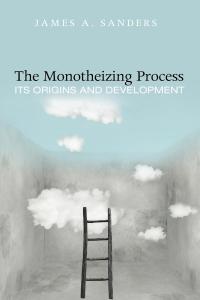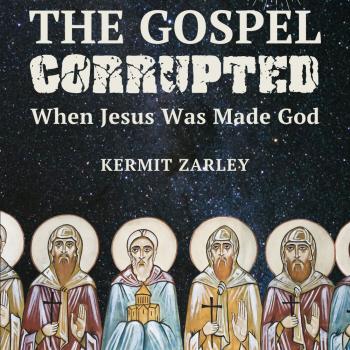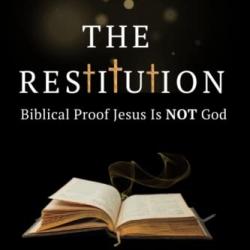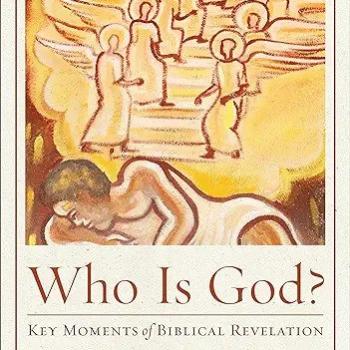 James A. Sanders was professor emeritus at Claremont School of Theology in Pasadena, California, when he died in 2020 at the age of 92. He perhaps was known academically mostly for his work as a textual critic of the Old Testament, but especially his early work with the Dead Sea Scrolls, namely the Psalm Scroll of Cave 11, and his early publications about the DSS.
James A. Sanders was professor emeritus at Claremont School of Theology in Pasadena, California, when he died in 2020 at the age of 92. He perhaps was known academically mostly for his work as a textual critic of the Old Testament, but especially his early work with the Dead Sea Scrolls, namely the Psalm Scroll of Cave 11, and his early publications about the DSS.
Professor Sanders was born in Memphis, Tennessee. He achieved his PhD at Hebrew Union College in Cincinnati, Ohio, under the supervision of the renown Jewish scholar Samuel Sandmel. Sanders then taught at prestigious schools such as Union Theological Seminary and Columbia University, both in New York City. He taught twenty-one years at Claremont until his official retirement there in 1997. He then taught for many years at Bloy House of The Episcopal Theological Seminary at Claremont.
James A. Sanders’s last book seems to have been The Monotheizing Process: Its Origins and Development. It was published in 2014 by my publisher Wipf and Stock Publishers in Eugene, Oregon, Although only 100 pages, it is endorsed by eminent Old Testament scholar Walter Brueggemann of Columbia Theological Seminary, Georgia. He states, “No one has thought as well and as long, as imaginatively and helpfully about canon as has Jim Sanders.”
That is what this book is about–how early religious communities conceived of oral tradition and Bible manuscripts as canon that had been passed down to them. Sanders calls this “a monotheizing process.” He also applies it to dialogue between the three monotheistic religions: Judaism, Christianity, and Islam. He explains more acutely (p. 7), “To monotheize is to confess that the One God of All is beyond human ability to define or describe.” Sanders obviously was not a systematic theologian.
My interest in this book is that Sanders constantly refers to YHWH–the God of the Bible whose name is usually pronounced “Yahweh”–as “the One God of All.” Sanders therefore teaches a strict monotheism for normative Judaism and that both Judaism and Islam worship the same God. But Sanders questions if post-apostolic Christianity can be categorized as monotheistic due to its doctrine of the Trinity and therefore that Jesus is God, which latter Sanders repeatedly refutes biblically. Yet Sanders is sound in Christian faith by believing Jesus is the promised Messiah whom God raised from the dead.
I wrote a book, The Restitution: Biblical Proof Jesus Is Not God, which is in agreement with Sanders on this topic. In fact, many of Sander’s statements affirm much of my book. Rather than provide a thorough review of Sanders’s book, I will now quote several of its texts that address the identity of God and Jesus, with a bare few other texts added:
- Sanders says of Christians, “we engage in blatant idolatry of Jesus as our Christ instead of worshiping God” (p. 51). This reminds me of some important and provocative statements Jimmy Dunn says in his book, Did the First Christians Worship Jesus? (See my review of this book.) Dunn says therein, “only God, only the one God, is to be worshipped” (p. 146). Dunn continues, “Christian worship can deteriorate into what may be called Jesus-olatry. … The danger of Jesus-olatry is … that Jesus has been substituted for God, … the worship due to God is stopping at Jesus” (p. 147). Dunn asks, “Did the first Christians worship Jesus? … No, by and large the first Christians did not worship Jesus as such” (p. 150).
- Sanders applies his “monotheizing hermeneutic” to Jesus’s Sermon on Mount by saying, “when one loves one’s enemies” that person listens to them and thereby “understands their point of view instead of denigrating it in order to argue one’s own” (p 53).
- Sanders calls us to “eliminate all vestiges of (Barthian) christocentric theism, and to engage in efforts to understand what a theocentric Christology would truly mean for church and world. … Monotheizing would require restudying what the Gospels say about Christ in terms of belief that God is the One God of all humankind” with the result of an “emerging theocentric gospel” (p. 57).
- Sanders continues, “The churches must move from their present focus on (Barthian) christocentric theology to a theocentric Christology in which the focus would be on the One God of All that we all profess” (p. 59).
- Sanders adds, “Christianity has come dangerously close to idolatry in adoring Christ instead of God in Christ. Instead of worshiping our Christ, we Christians should worship and adore God and not any of God’s gifts, not even his greatest gift in Jesus Christ” (p. 60).
- Sanders alleges, “We are convinced that neither Judaism nor Christianity in its present forms can be described as consistently monotheistic in outlook and practice” (p. 66).
- Sanders recalls the church councils of the 4th and 5th centuries, wherein Trinitarianism was developed, and explains, “The basic story about Jesus got lost in debates over details about who Christ was and how. Right belief became more important for Christians than the simple story when they in turn had power. Christians forgot what Jesus had taught about loving their neighbor, even their enemy. They made concepts of Christ idolatrous and forgot what Jesus taught about God” (p. 81).
















